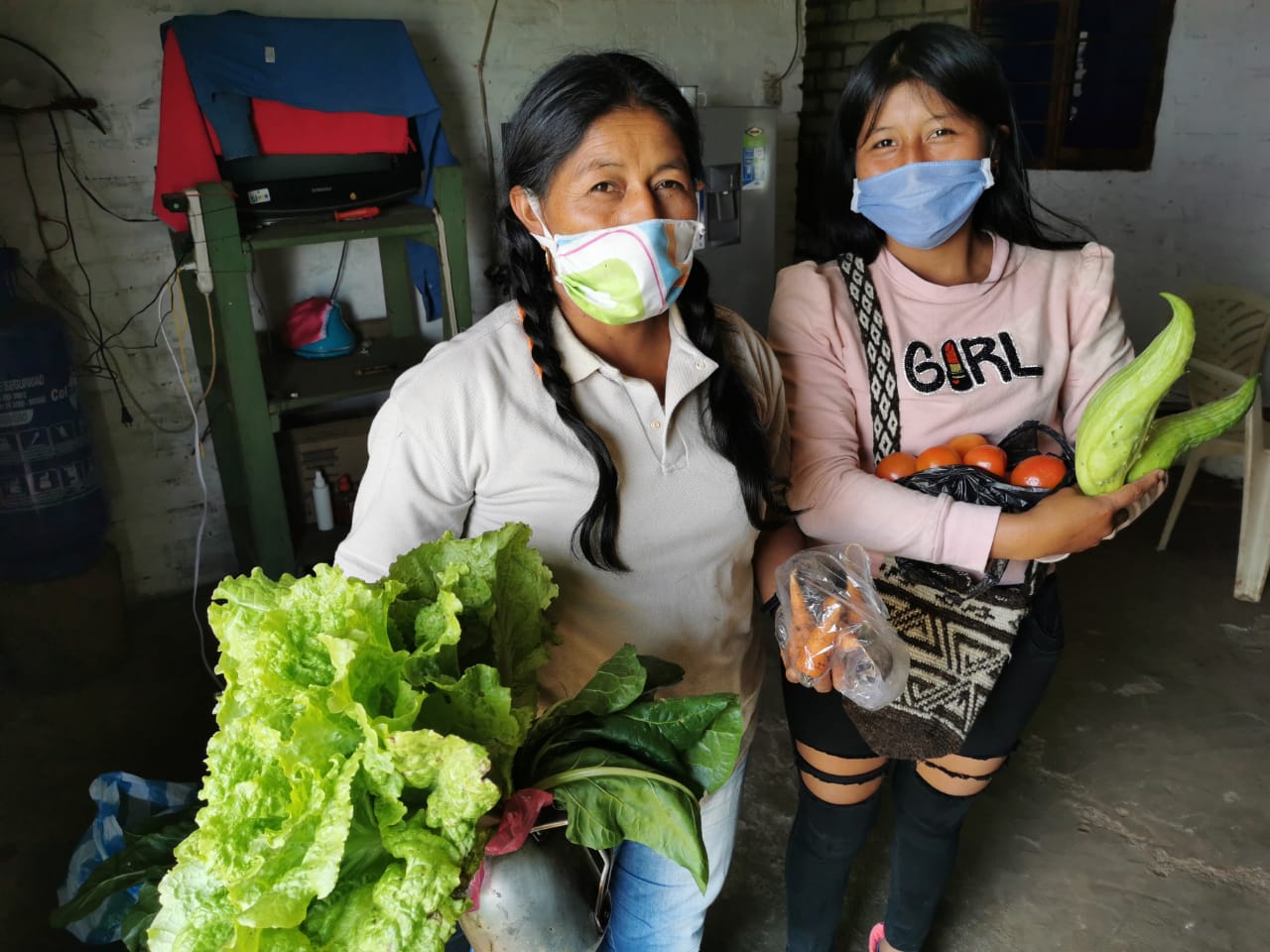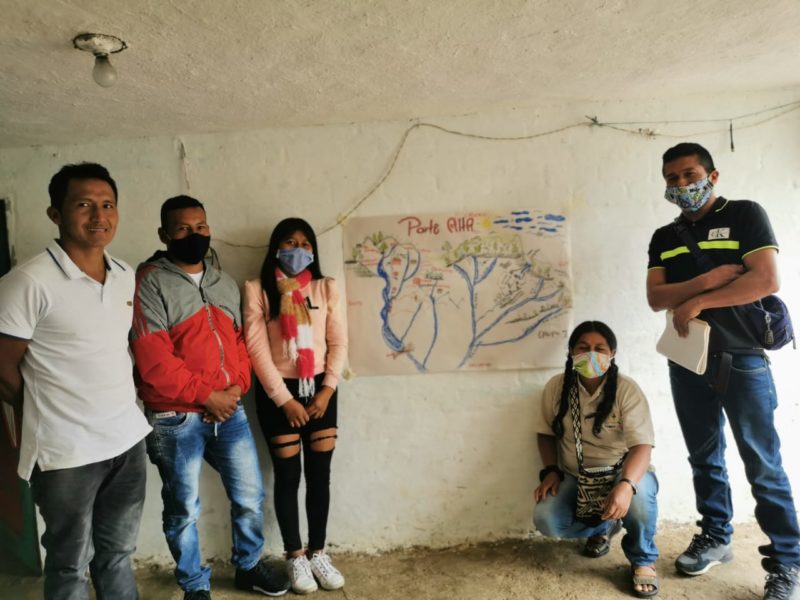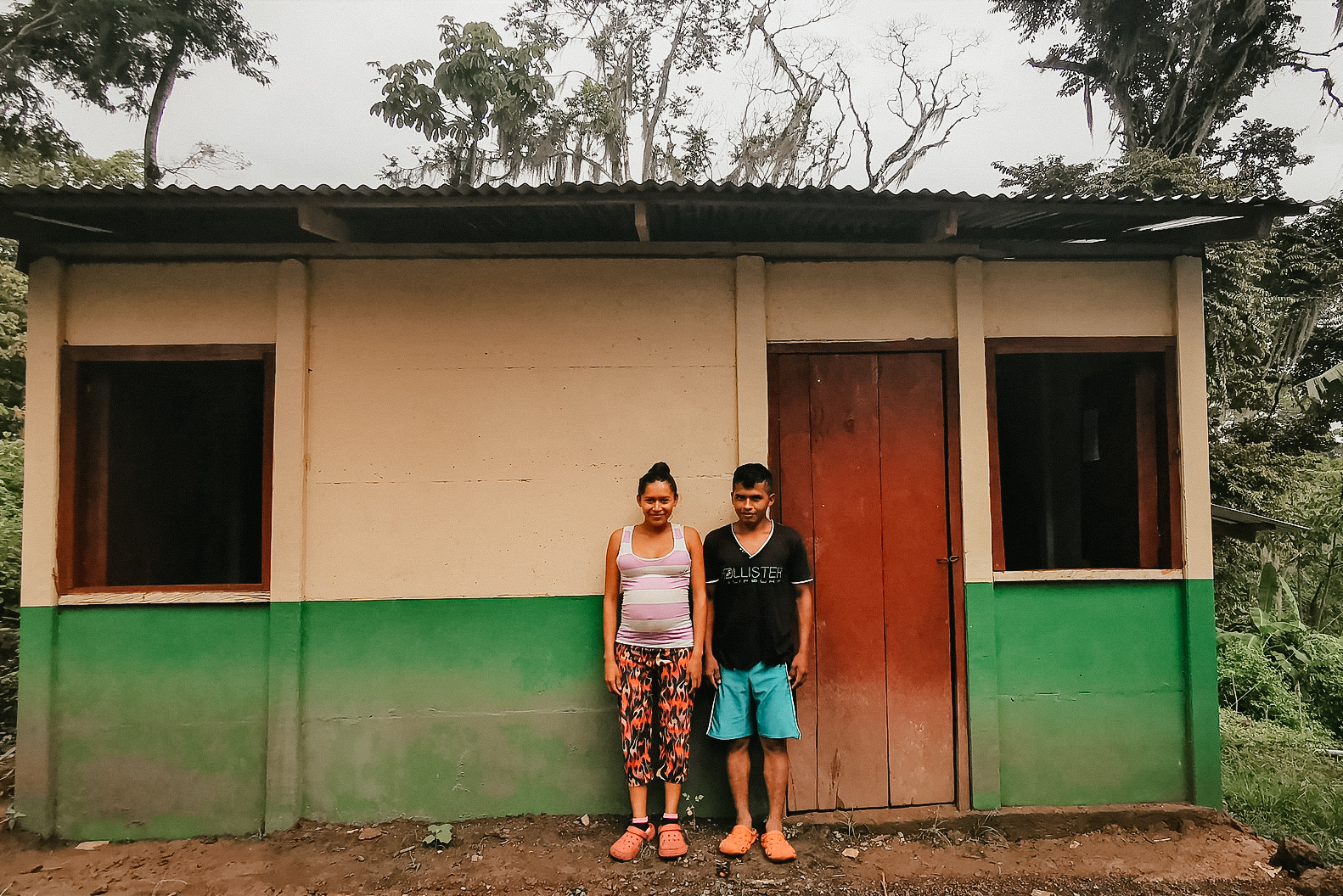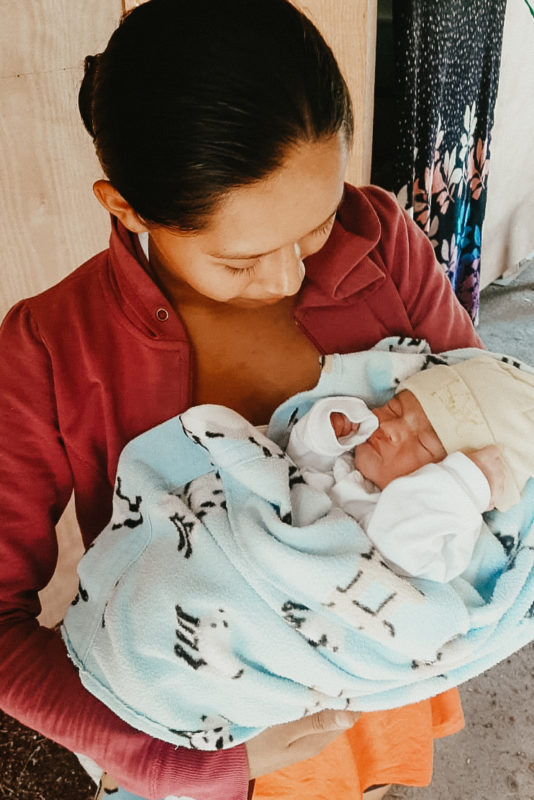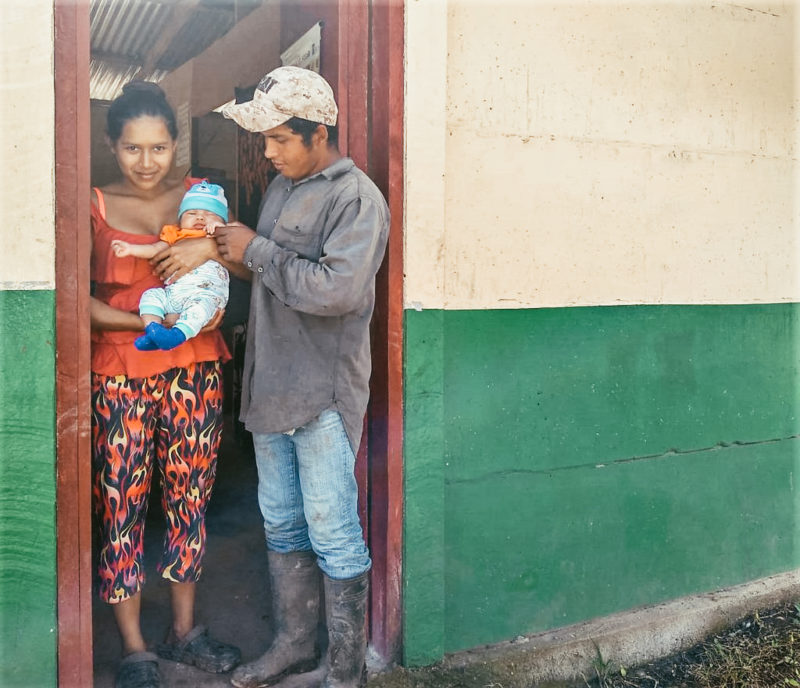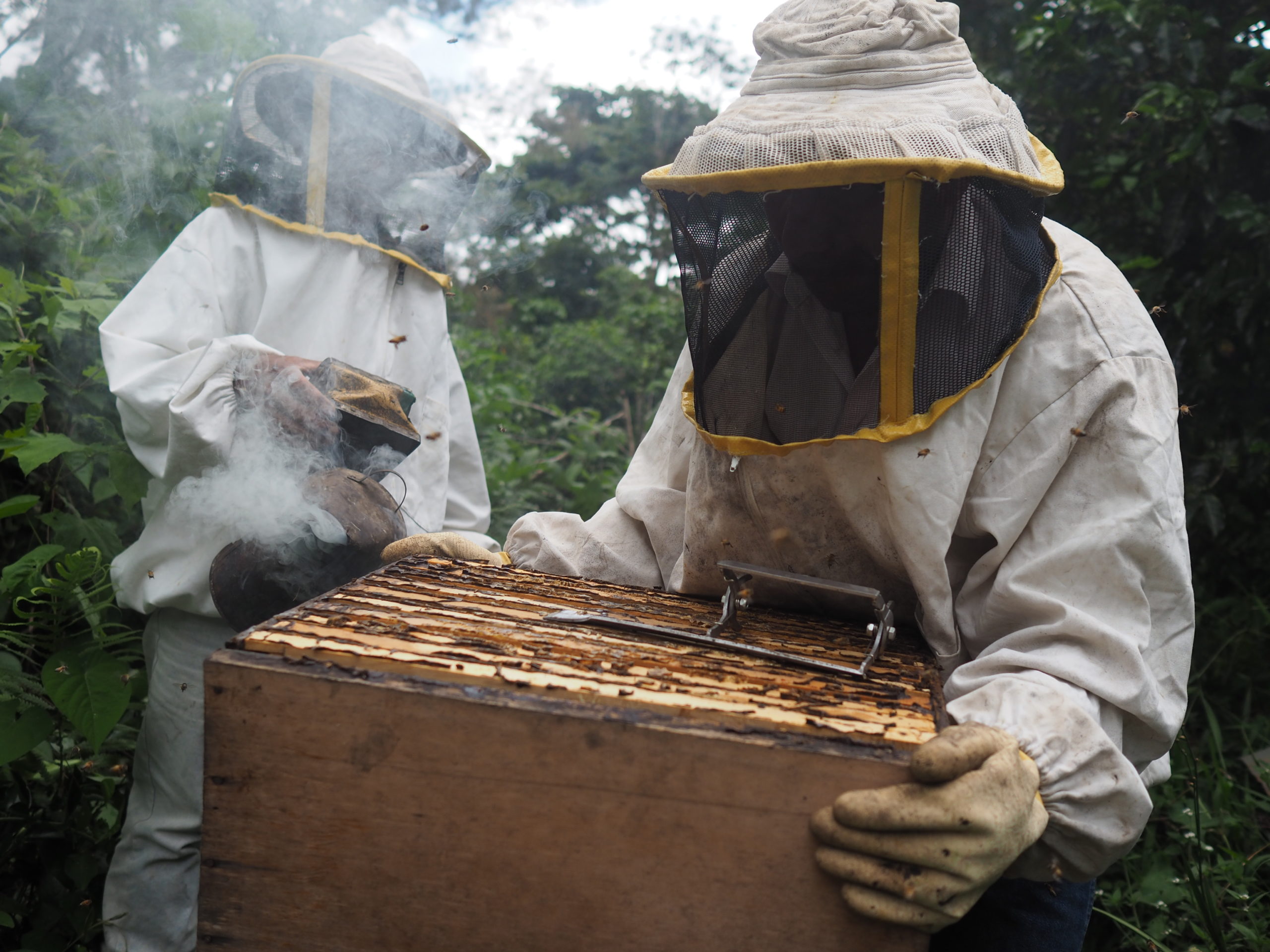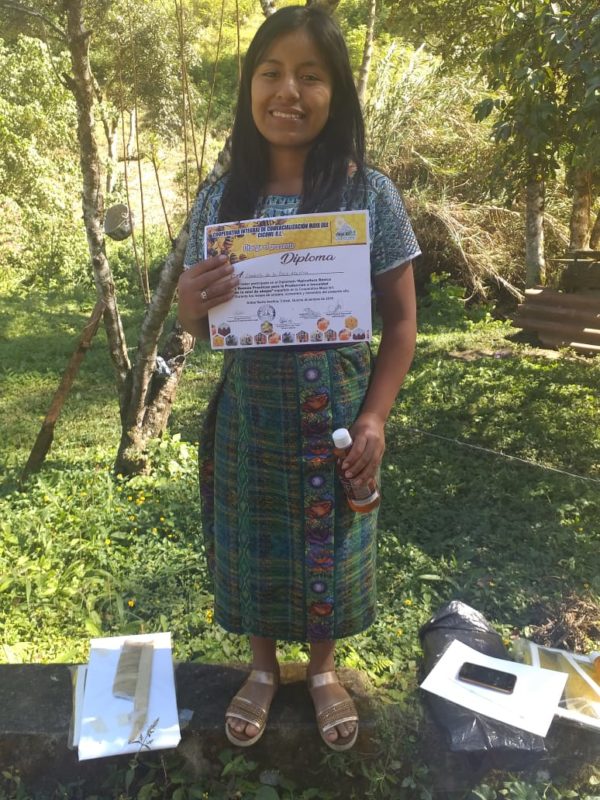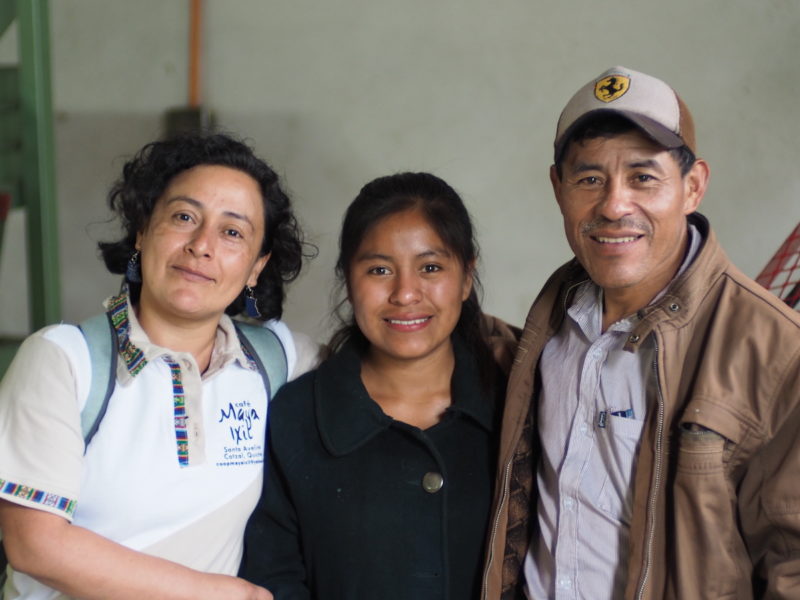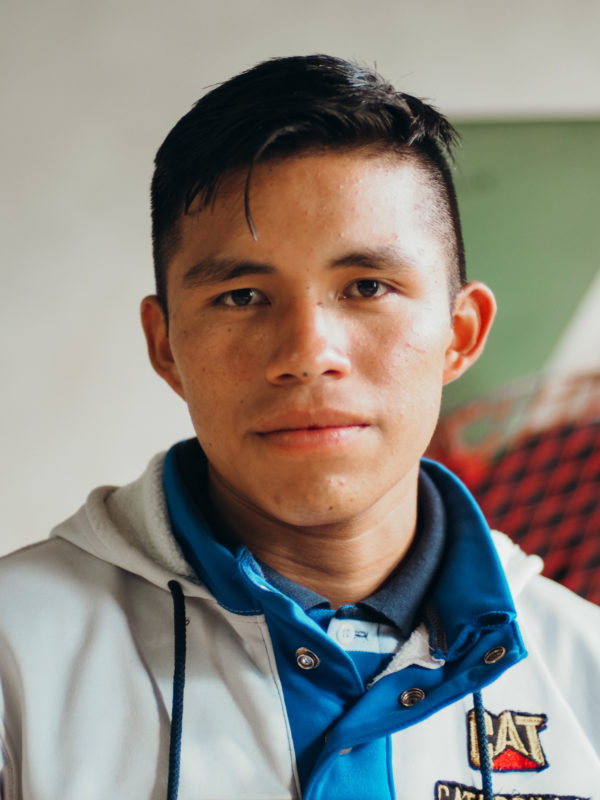Blanca’s Journey to Motherhood – An Agros Story
In honor of mothers across the world, we want to share the story of Blanca Nubia, a young mother who, through the support of Agros, has risen above poverty into prosperity.
From Despair…
Blanca found out she was pregnant when COVID-19 hit. She and her husband, Yader, lived in a shack without running water or a basic latrine. Though they worked hard as day laborers, it was difficult to earn more than a few dollars a day and work was even more unpredictable. Fears and uncertainty about her living situation were worsened with the anxiety of her first pregnancy and the pandemic that threatened the life of her child, especially with no access to medical care.
…To Hope
We reached out to Agros supporters and asked them for help. The response was inspiring. Because of the generous support that poured in, not only did Blanca and Yader start receiving personal protective equipment and food, but they also were presented with their own home and land in the Agros village of Nueva San Jose. Blanca shares, “Before, we didn’t have a house, land, or medical attention. Agros has brought us closer to those services, and that makes me feel safe and self-assured.”
Blanca also began receiving special attention to make sure her pregnancy continued smoothly. A doctor visited Blanca for regular check-ups and provided her with prenatal vitamins and supplements.
In October last year, we asked Blanca about the assistance she had been receiving from Agros, “The doctor has been monitoring the advances in my pregnancy and refers me to the local health center,” she responded, “I am grateful for the doctor’s home visits. They give me confidence that my child will grow healthy and strong.”
In November of 2020, Brayan Estiben was born in a hospital – healthy and without any complications. “It was painful when I was giving birth,” Blanca reflects, “but when I had my baby in my arms, all of the pain went away. It is a marvelous experience to be a mother.”
Lasting Change
Brayan’s health is monitored as he continues to grow. Recently, his weight was checked by an Agros trained health brigadista (a volunteer medical worker) and she was happy to find the baby in good health. (The area surrounding Blanca and Yader’s village has an average childhood malnutrition rate of over 60%. Thanks to the overwhelming support of Agros donors, this issue is being addressed.)
As Blanca makes her journey through motherhood, she will continue to have access to food, supplies, and medical assistance through Agros.
Both she and Yader received farming training as well. Yader is cultivating his own crops, which will allow them to generate a sustainable income and reliable food source. We are so grateful for you and all the Agros supporters who answered Blanca’s call for help. Today, she and her family are able to support themselves as they build a bright future together.
